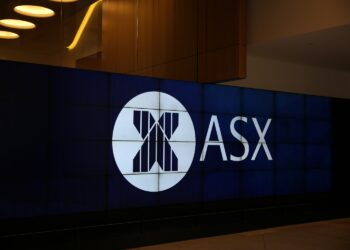In his annual letter to shareholders, Berkshire Hathaway chairman Warren Buffett confirmed he has won a US$1 million bet that pitted a passive investment approach against five ‘funds of funds’ hedge funds.
The bet, made on 19 December 2007, was that a “virtually cost-free” investment in an unmanaged S&P 500 Index fund would, over time, deliver better results than those achieved by most investment professionals – “however well-regarded and incentivised those ‘helpers’ may be”.
Mr Buffett’s counterparty, Protégé Partners, picked five ‘funds of funds’ that in turn owned interests in more than 200 hedge funds.
The bet started off badly for Mr Buffett in 2008, with the GFC dragging down the S&P 500 by 37 per cent – a worse loss for the year than all five of the funds of funds.
But in the nine subsequent years, the index fund outperformed the hedge funds every year. Over the decade, the S&P 500 Index fund had an average annual gain of 8.5 per cent (compared with average annual returns ranging from 0.3 per cent to 6.5 per cent for the professionally managed funds).
“A final lesson from our bet: Stick with big, ‘easy’ decisions and eschew activity. During the ten-year bet, the 200-plus hedge-fund managers that were involved almost certainly made tens of thousands of buy and sell decisions,” Mr Buffett said.
“Most of those managers undoubtedly thought hard about their decisions, each of which they believed would prove advantageous. In the process of investing, they studied 10-Ks, interviewed managements, read trade journals and conferred with Wall Street analysts,” he said.
The US$1 million prize money – which Mr Buffett pledged to donate to Omaha advocacy group Girls Inc – was initially funded by an outlay of US$318,250 by both parties into zero-coupon US Treasury bonds with a face value of US$500,000.
However, after some “very strange” movements in bond markets between 2008 and November 2012 that saw the bonds selling at 95.7 per cent of their face value, Mr Buffett and Protégé Partners decided to sell the bonds and instead invest in Berkshire Hathaway ‘B’ shares.
The result was that Girls Inc found itself receiving US$2,222,279 in January 2018 rather than US$1 million, Mr Buffett said.
“Purportedly ‘risk-free’ long-term bonds in 2012 were a far riskier investment than a long-term investment in common stocks. At that time, even a 1 per cent annual rate of inflation between 2012 and 2017 would have decreased the purchasing power of the government bond that Protégé and I sold,” he said.
“It is a terrible mistake for investors with long-term horizons – among them, pension funds, college endowments and savings-minded individuals – to measure their investment “risk” by their portfolio’s ratio of bonds to stocks. Often, high-grade bonds in an investment portfolio increase its risk,” Mr Buffett said.







